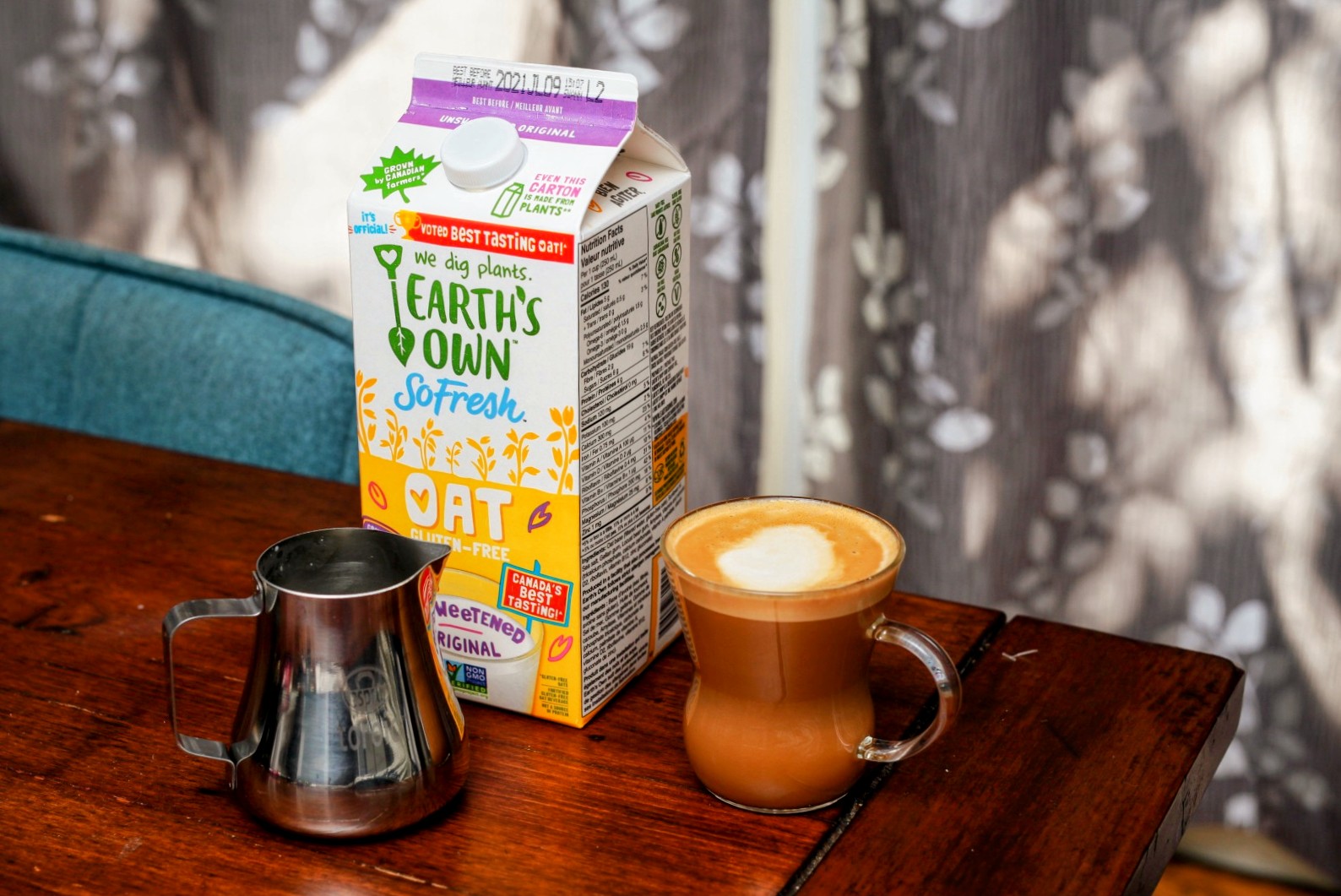Products You May Like
A little more than two years ago, I realized I need to stop drinking cow milk. Deciding which plant-based milk should replace it was a decision that was inherently about what would work best with my coffee, as coffee is the main reason I drink milk. The CoffeeGeek team has been covering the rising trend of plant-based milk in the specialty coffee world quite extensively recently, and I thought I’ll add my own two cents on the subject.
I’ll begin with a few disclaimers: I usually drink French press brewed coffee at home, and espresso based drinks with milk when out in a café; my preferred flavor palette is full and chocolaty. So, my recommendations are based on my experience with these parameters. But occasionally, I do partake in other brewing methods and flavors, and my conclusion has always remained the same.
What is that conclusion? Oat milk, people. Oat milk for the masses. From any standpoint—how good it tastes with coffee, how well it mixes with coffee, and its environmental impact. I’ll get into the characteristics that make oat milk the perfect plant-based milk companion shortly, but first, I want to go through other types of plant-based milks I tried on my way to oat. Of course, all recommendations come with the caveat that it is always better to purchase the “Barista” editions of plant-based milks if you aim to make coffee with them.
Soy
Soy milk might be the most commonly known of all plant based milk alternatives. At least it was, a little more than two years ago. But it was completely off the table from the start. I used to drink cappuccinos with soy milk at my first job as a barista, but I was fifteen back then, not used to the taste of coffee, and my palate has been refined since then.
Most soy milks available in stores have a natural sweetness that overtakes and ruins the delicate balance of flavors in any kind of bean, blend, roast, and brewing method. Nowadays, there are various types of soy milks with reduced sweetness, but still, the soybeans themselves are quite sweet (have you ever consumed edamame with no salt on top?) and there is very little you can do to make coffee with soy milk not taste like you added sugar to it—which is just not my thing.
Soy milk is quite easy to froth properly compared to other types of plant-based milk, and its consistency desirably heavy, so really it all comes down to its taste, which is simply not for me.
Almond
Almond milk was something I tried for a while and completely gave up on. Almonds are just…too watery to replace cow milk (I drink whole), and they’re almost impossible to froth properly.
For me, they are too bitter. After every sip of a coffee drink that contained almond milk, I was left with a barely noticeable yet unpleasant aftertaste that told me something was just not working between my beans and my milk. It wasn’t worth it, and it didn’t do what I wanted it to do. (Admittedly, I haven’t tried ZussyK’s Almond Mocha, so if you do want to give almonds a shot, I’d say start there.)
Hazelnut
I don’t have much to say about Hazelnut milk except this: if you never, but absolutely never get sick of hazelnut-flavored coffee, this is the plant-based milk for you. I cannot imagine such a person exists out there but do let me know if I am wrong and that is you. The taste is noticeable. It’s dominant. And that’s nice if you’re specifically after a recipe that works well with hazelnut flavor, as you don’t need any other additives if you base it on hazelnut milk. But if you’re just brewing your ordinary cup of coffee and you’d like to not be disturbed…I couldn’t do hazelnut regularly.
The dominant base flavor is the reason I haven’t even considered coconut milk or any type of plant-based milk with additives such as vanilla or chocolate. These could be fun for one-off special occasions, but when it comes to completely replacing cow milk they just won’t do.
Rice
A popular plant-based variety is rice milk, and especially rice mixed with other plants, such as rice and almond milk, rice and hazelnut milk, and so on and so forth. Vitariz is an especially popular brand that mixes rice with pretty much anything. Many companies who manufacture several types of plant-based milk, such as Alpro, will mix and match different plants together to create unique and varied flavors. Those, again, could be fun to experiment with, but don’t work as well when you’re after a thick, relatively neutral replacement to cow milk. Rice milk wasn’t that. Similarly to almond, it was just too watery and came with a slight aftertaste.
This brings me to oat milk.
Oat

So, why am I such a big fan of this grain? Compared to the characteristics that deterred me away from other milks, oat milk is creamy in texture, and similarly to the taste of oatmeal, it is rich yet not overpowering and mixes well with a wealth of flavors and temperatures.
Oat milk froths extremely well thanks to a percentage of fat that is closer to cow milk than almond or even soy. It has the bonus of containing fiber. And as mentioned, its environmental impact is something to aspire to. In my search, I was after a better version of cow milk, and I found it. Heavy, neutral, and easy to work with.
Oat milk is rising in popularity, and so is the number of brand options. Where previously Oatly dominated the market, nowadays everyone wants in on oat milk. Go ahead and try.


